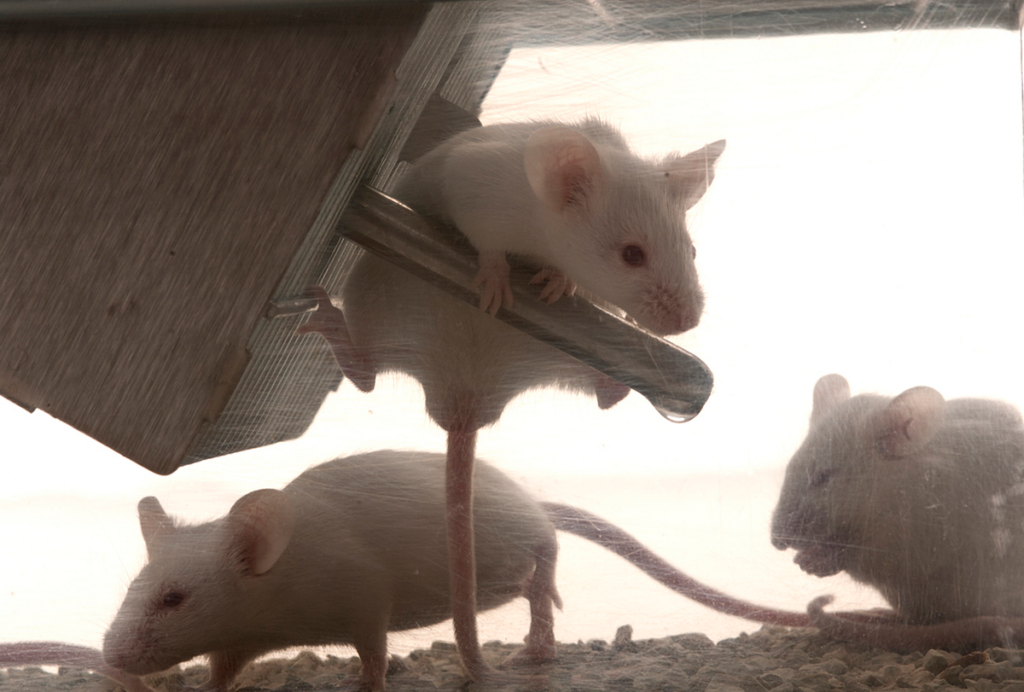Hi there, and welcome to the Spectrum community newsletter! I’m your host, Chelsey B. Coombs, Spectrum’s engagement editor. I hope you had a great holiday break, but now that we’re all back to work, let’s jump in.
Our first tweet thread this week comes from Yuki Kamitani, a neuroscientist and professor of informatics at Kyoto University. His lab just posted a preprint in bioRxiv called “Attentionally modulated subjective images reconstructed from brain activity.”
Visual images can be reconstructed from fMRI brain signals. Are they just about stimuli or about subjective percept? In this new preprint, work led by Horikawa-san, we show that given overlapping images as a stimulus (left), attention (to 'red') alters the reconstruction (right) https://t.co/QqKzw01hEq pic.twitter.com/V5wb41kuXd
— Yuki Kamitani (@ykamit) December 29, 2020
Follow the link to see the videos and gifs the team created. They used functional magnetic resonance imaging data and ‘deep image reconstruction’ to try to recreate what study participants see when presented with a visual stimulus. This has been done before, but what makes their study different is that they showed overlapping images to participants and asked them to pay attention to only one. They found that changing what a person pays attention to actually alters the person’s reconstruction of the superimposed images, showing that subjective perception affects what the brain sees.
Neuroscientist Matt Wall called the work “very cool.”
Amazing work! Very cool.
— Matt Wall (@mattwall.bsky.social) (@m_wall) December 29, 2020
Our next featured post comes from Sarah Cassidy, assistant professor of psychology at the University of Nottingham in the United Kingdom.
New paper! TW Suicide
Autism and the double empathy problem: Implications for development and mental health. We propose a link between autistic people being misperceived by the neurotypical majority and their being at risk of poor mental health (free) https://t.co/Mq2zzl3wCQ
— Sarah Cassidy (@Sarah_NottsUni) January 4, 2021
Her research group has published a new study in the British Journal of Developmental Psychology that is attracting a lot of attention from both autism researchers and autistic advocates. It’s called “Autism and the double empathy problem: Implications for development and mental health.”
The team found that non-autistic people’s misperceptions about autistic people “influences the perceptions and behaviour of autistic people such that they become increasingly separate and indeed isolated from mainstream society.” This, in turn, they write, “jeopardizes their mental health and prevents autistic people from developing to full potential.”
Noah Sasson, associate professor of behavioral and brain sciences at the University of Texas at Dallas, called it a “very important paper.”
Congratulations on this very important paper!
— Noah Sasson (@Noahsasson) January 4, 2021
Neil Kenny, assistant professor of inclusive and special education at Dublin City University in Ireland, noted, “There are obvious implications for education, particularly in the context of whole school wellbeing and inclusion.”
There are obvious implications for education, particularly in the context of whole school wellbeing and inclusion. https://t.co/JLLH7lAZ6m
— Neil Kenny (@NeilKenny0) January 4, 2021
Lily Levy, a child and adolescent mental health services clinician in the U.K., added that the study is “just another reason why doing research that matters to autistic people matters.”
This couldn’t be more important. Just another reason why doing research that matters to autistic people matters. Big up @Sarah_NottsUni @Noahsasson @milton_damian @lauralhull and all the other legends who are making the field so much better and brighter! https://t.co/BDtU6s1d4G
— Lily Levy (She/Her) (@lilyhannahlevy) January 4, 2021
Georgia Pavlopoulou, a senior teaching fellow at University College London, tweeted, “Something we see in clinical practice and hear a lot in my small scale projects (importance of social determinants)- good to see this published by authorities in the field of mental health.”
Wow. Sara did it again! Something we see in clinical practice and hear a lot in my small scale projects (importance of social determinants)- good to see this published by authorities in the field of mental health. Will read with great interest later tonight. https://t.co/45fzl9J6QB
— Dr Georgia Pavlopoulou (@JoPavlopoulou) January 4, 2021
Pavlopoulou also published a new study in Frontiers in Psychology: “A good night’s sleep: Learning about sleep from autistic adolescents’ personal accounts.”
Coproduced knowledge with #autistic teens' #sleep may help clinical practice to move away from the current dominant behavioural approaches and traditional sleep hygiene rules that were designed for the non-autistic population. FREE full article 👇https://t.co/I7cXjgBkcf pic.twitter.com/v27D8lTHhB
— Dr Georgia Pavlopoulou (@JoPavlopoulou) December 27, 2020
Autism consultant and specialist teacher Trudi Rainsberry hailed the study’s “fabulous collaborative approach.”
Thank you so much for sharing! A really interesting and important research topic – fabulous collaborative approach 🌟 https://t.co/dQjhDUHyBL
— Trudi Rainsberry (@RainsT46) December 28, 2020
Speech and language therapist Theresa Redmond called it “an interesting but also very moving piece of research.”
This is an interesting but also very moving piece of research. It shouldn’t be so surprising but I’ve not read anything quite like it…. https://t.co/9YV1FWlF0G
— Theresa Redmond (@TheresaJRedmond) December 27, 2020
Thanks for reading this week’s Spectrum community newsletter! If you have any suggestions for interesting social posts you saw in the autism research sphere this week, feel free to send an email to me at [email protected]. See you next Sunday!





